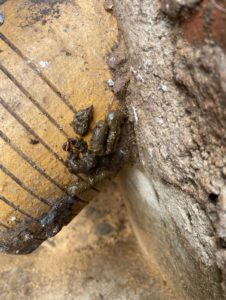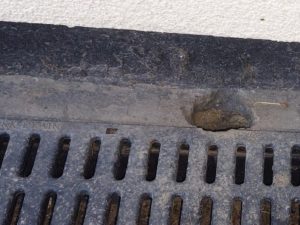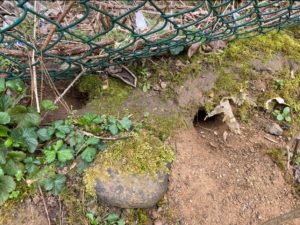Get Rid of Rats
Prices from £165 +VAT
To get rid of rats from your home or business premises call 0800 026 0308

Guarantee
The poison bait treatment is guaranteed to eliminate the current rat infestation if the correct preparation and aftercare have been carried out. We cannot guarantee against future rat infestations.
- In flats, terraced houses and multi-occupancy buildings rats may spread from adjoining premises.
- If there is a sewer breach which hasn’t been rectified rats will continue to access the property.
Rats are one of the ultimate survivor species because they are natural scavengers, remarkably intelligent, highly adaptable to their surroundings and can squeeze through tiny spaces. This is what makes them one of the most successful animals on the planet and makes getting rid of them a difficult task.
What are the signs of a rat problem?
 Once rats enter your home they will hide away and breed so you will soon have a major infestation. Recognising the signs early means you can eliminate the problem before it becomes severe.
Once rats enter your home they will hide away and breed so you will soon have a major infestation. Recognising the signs early means you can eliminate the problem before it becomes severe.
Droppings A rat produces up to 40 droppings each night. They are dark and shiny and about the size and shape of an olive. You’ll find them in large groupings (see adjacent image).
Urine puddles Rat urine has a very sharp smell which you can’t miss.
Scratching Rats can climb walls so you’ll hear scratching noises behind walls, particularly at night when they’re most active.

Footprints In dusty rooms where rats have been running around you’ll see footprints or tail marks.
Gnaw marks Rats have incisors that never stop growing so they gnaw constantly to keep their teeth ground down. You’ll see gnaw marks on anything hard such as cables, concrete, wood, metal, walls, pipes, and furniture (see adjacent image of metal drain and concrete that rat has gnawed to make a hole).
Foul smell When rats live, breed, defecate, die and decompose between your walls or under your floorboards you’ll notice a foul smell.
 Nesting materials Rats bunch together shredded paper, cardboard, fabric and plastic to make their nests. You’ll see shreds of the materials around their burrows which they dig into the earth and nests built in drains, around rubbish bins, in compost heaps, amongst logs, under sheds and in outbuildings (see adjacent image showing rat holes with nesting materials around the entrance).
Nesting materials Rats bunch together shredded paper, cardboard, fabric and plastic to make their nests. You’ll see shreds of the materials around their burrows which they dig into the earth and nests built in drains, around rubbish bins, in compost heaps, amongst logs, under sheds and in outbuildings (see adjacent image showing rat holes with nesting materials around the entrance).
Rats out and about during the daytime If you see rats feeding during the daytime it usually means the rat infestation is heavy. These rats are the older and weaker members of the colony, feeding at a more dangerous time to avoid the more aggressive dominant rats.
Why use a professional company to remove rats?
Urban areas provides rats with perfect living conditions: food, water and shelter. Rats are prolific breeders and the potential for exponential growth in the rat population in a very short time is massive. They breed year-round and are able to reproduce at just 10-weeks old. A female rat can live for 2-years and produces up to 6-litters each year, which can result in a total of 120-offspring. Because of this it’s important to achieve a complete kill of all the rats in a colony. A professional pest control technician understands the behaviour of rats and knows where to place the bait throughout the site to achieve this.
Rats carry many severe, sometimes fatal diseases which they can spread to humans, normally through their urine and droppings. These include hantavirus, Weil’s disease, listeria, toxoplasma gondi and salmonella. They also can cause serious structural damage to properties by chewing through electrical cables which can cause fires, water and gas pipes etc. Many instances of electrical fires and floods have been attributed to them. Because of this they need to be handled carefully and disposed of safely.
Preparation you must undertake prior to treatment
- Leave any droppings or damage for the technician to look at
- Keep a record of where you see rats and ask your neighbours if they have any
- Stop feeding wild birds
- Stop putting food on your compost heap
Aftercare
To prevent future rat infestations you must identify and deal with the reasons you had an infestation in the first place. The following measures should be implemented.
- Do not feed wild birds
- Always dispose of any spilled or leftover food from feeding pets
- Always dispose of any animal droppings; do not put them on a compost heap
- Rat proof animal hutches and runs
- Store animal food in rat proof containers
- Keep rubbish bins securely closed
- Do not put food on your compost heap
- Keep a check on your compost heap to ensure it’s not providing a home for rats
- Locate and fill all access points into buildings, e.g. gaps around pipes, etc.
How our treatment works
We use the latest and most effective baits and poisons to eliminate a rat infestation. The bait is put into specially-designed feeding boxes, trays or occasionally loose and installed in the correct places throughout the site to ensure the whole population of rats feed on it. It can take up to 7-days before the rats start feeding on the bait as they are suspicious of new objects. The rats may feed several times before dying. If they do consume enough poison to give them a lethal dose on their first feed they won’t suffer any ill-effects immediately, ensuring that the other rats don’t become suspicious and associate the bait with illness or death.
We cannot accept responsibility if any rats die in places where their bodies may smell i.e. under floorboards.
We make a second visit to the site to remove the bait and any dead rats for disposal. Dead rats must be buried or burned and protective gloves and a mask must be worn whilst handling them as they carry disease.
Products we use
The technician will state which insecticide has been used on the report they give you after they have completed the treatment. Click each product to access its safety data sheet.
Bait
Odourcide
Biocidal spray
Additional services we offer
Rat proofing
To effectively protect a property from rat infestations long term, proofing needs to be carried out by a professional pest control technician who understands the behaviour of rats. It’s time-consuming and may seem costly, but it prevents repeated visits by a pest control company to get rid of rats from your property.
Loft insulation removal & installation
For a low-level infestation, we recommend spraying the affected area and loft insulation with a biocidal spray.
Price for a biocidal spray treatment from £90 +VAT
If rats have caused damage to the loft insulation that affects its performance or there has been a heavy infestation which has severely contaminated it, we recommend replacing it. Our technicians are trained to safely remove and dispose of contaminated loft insulation to prevent spreading contamination and endangering your family’s health.
Our loft insulation replacement service includes:
- Safe removal and disposal of the contaminated loft insulation.
- Vacuuming of the loft space to remove any droppings and other debris.
- Application of a biocidal spray to the whole area.
- Installation of fresh, new loft insulation.
We can only carry out this service after the rat infestation has been eradicated.
The cost depends on the size of the loft space. Call 0800 026 0308 for a quote.
To find out more see our page on loft insulation removal & installation.
Rat problems in drains and sewers
If we suspect that rat problems are coming from breaches in your drains, our technician uses test bait to confirm the presence of rats in your drains. We then investigate by doing a camera survey of the drains near or under a building around the external wall/sewer point for a distance of up to 3-metres to identify if a breach has occurred. The specialist camera we use is extremely high quality and designed to identify any holes accessed by rats. The footage can be recorded onto a memory card which can be played back on a television.
If rat activity is confirmed we will fit a sewer one way return valve in the appropriate location. This allows sewage to flow out but prevents rats going ‘up’ the sewer, as well as preventing backups of sewage from entering the property. It may be necessary to fit more than one sewer valve if the property is in a terrace of houses, block of flats or semi-detached house.
If the drain is operating without leaks, smells or earth getting into it then this will instantly solve the problem for a fraction of the cost of digging up and replacing the drain.
PEST UK cannot guarantee that installing a sewer one way return valve to stop rats coming from the sewer into the drain will resolve the issue but in a lot of cases they are successful in preventing rats accessing a property. Our technicians fit dozens of sewer one way return valves each year.
To find out more see our page on rat problems in drains and sewers.
